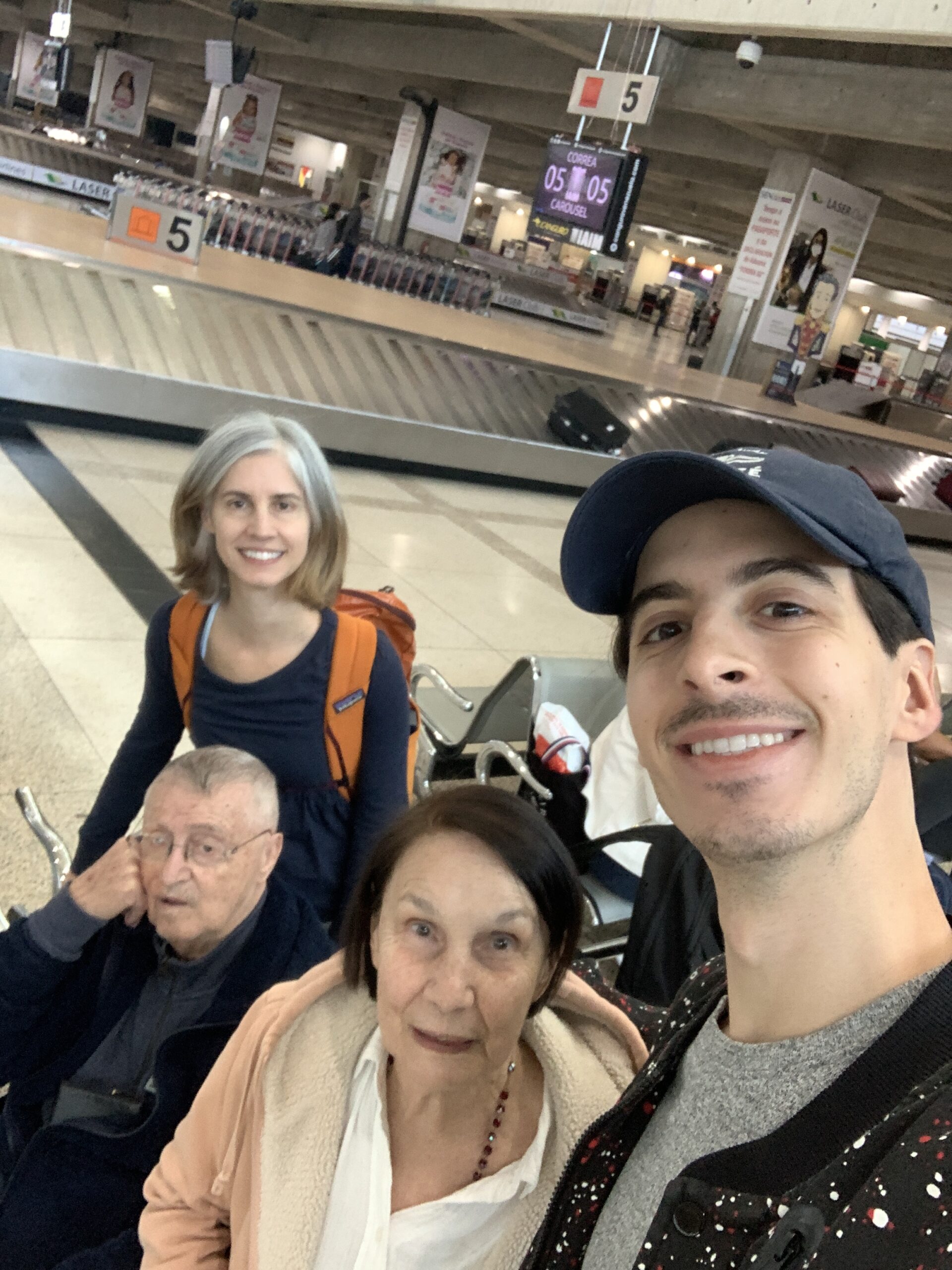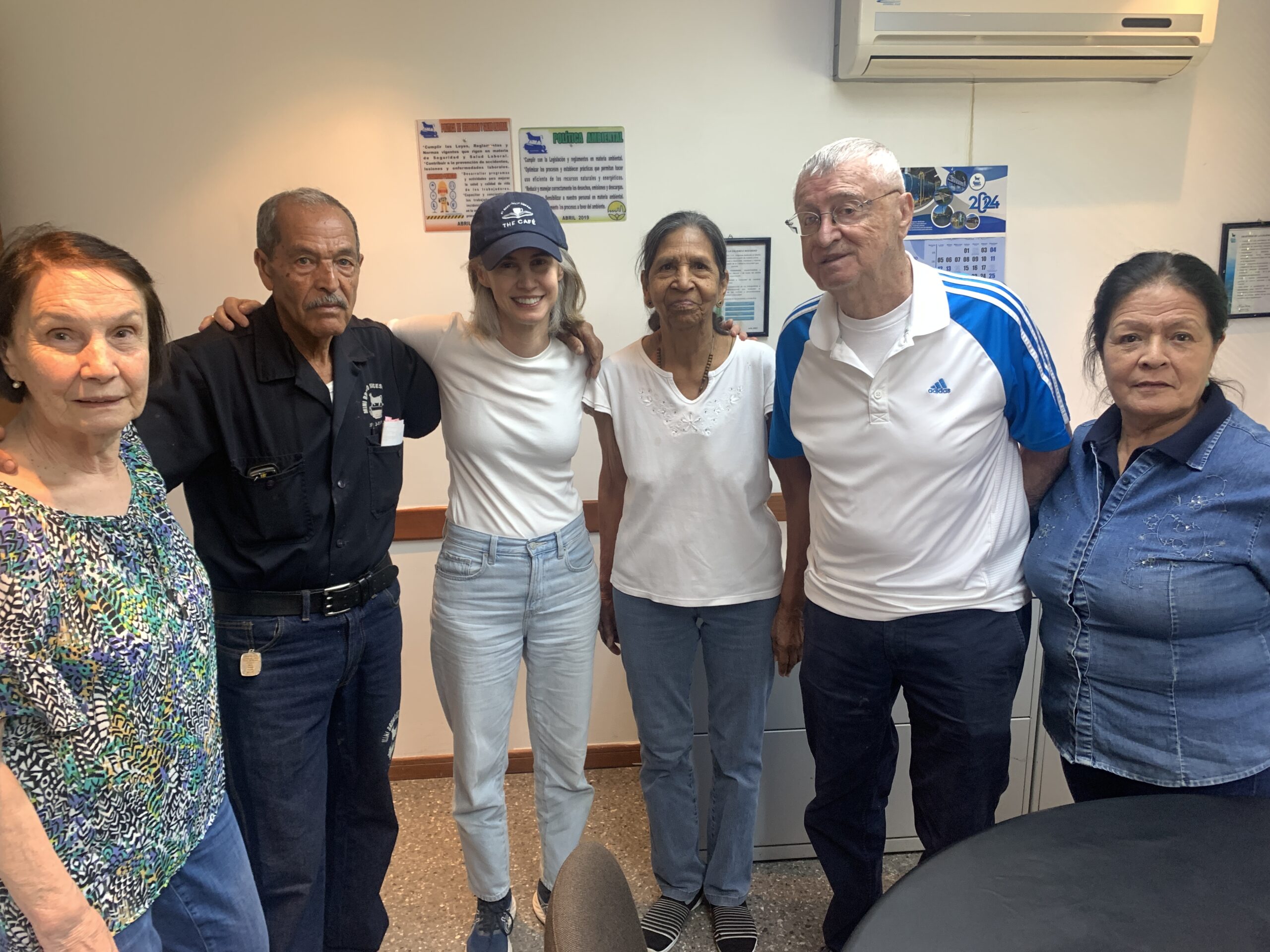
My father reminds me of the ogre Shrek: grumpy, odd, impatient, looking to be left alone, but at the same time inordinately sweet, interesting, and self-assured.
These discordant qualities have become more pronounced as he has aged, so that he’s now more annoying and needy, but at the same time funnier and more lovable.
For instance, on his latest dental checkup, he had a massive breakdown when the dentist recommended removing a sick molar. He was so beside himself that my mother called and begged me to accompany them to the oral surgeon that very day before my father had a chance to change his mind.
My mother and I had to hold his hand until we were asked to leave the room for the extraction. My father asked so many questions you would’ve thought he was having a leg amputated. As we left, he proclaimed he would never go to the dentist again.
I had the fortune of sharing in my father’s drama once again two weeks later when I traveled with my parents and son Andres to Caracas, Venezuela, where we’re from.
As soon as we got in the car to go to the airport, my father announced he was anxious, adding, “My sister’s in a nursing home and she doesn’t ever want to leave, not even to his daughter’s house,” as if we were forcing him to travel.
At the airport, my father speed shuffled to the airline counter to request a wheelchair, which he needs in an airport environment, and which also saved us a great deal of grief and waiting.
We skipped the line and went straight to check-in, where the agent noted that two of my parents’ four bags were significantly above the weight limit, and had us reshuffle the contents across bags so that each was just a bit over. Otherwise, she said, “I’ll have to charge you $100, and you’ll be charged again on the Panama to Caracas leg of the trip.”
I think it was my frustrated-looking father in the wheelchair that softened her heart.
One of my father’s foremost concerns at the airport was being separated from his passport. He placed it on the tray that travels along the conveyor belt at security, and pretty much held his breath until he could take it back.
This is a man who used to travel internationally with his family of seven kids every year, which meant handling documents for nine travelers. Now his sole focus is his passport and, even when he knows where it is, losing sight of it is enough to make him anxious.
“Papi,” I said when we reached our gate, “We’re on stage one of this trip. Stage two is to collect our bags and get to the hotel in Panama; stage three is to get on the plane in Panama; and stage four, clear immigration and collect our bags in Caracas.” My father has always loved tracking processes like that.
When we arrived at the hotel in Panama, my father’s facial muscles relaxed when I remarked that we had completed two of the four stages, which led me to anticipate that he would be more chill on the last two.
Not the case. The next day, we were to take the hotel shuttle to the airport at 6:00 am.
“What time are you getting up?” he asked me.
“I’m going to set my alarm at 5:15,” I replied.
“But that’s too late.”
“Papi, that’s more than enough time to get ready and take the bags down!”
My father was knocking on my door at 4:20 am.
“Papi, it’s only 4:20,” I moaned.
“Are you sure? My clock says it’s 5:00 and I called the reception and they said it was 5:00,” he asserted.
“It’s not. It’s 4:20,” I said after checking my phone and my Andres’s phone. “I set my alarm at 5:15. I told you.”
“That’s too late,” he said nervously before going away.
At 5:10, he knocked again.
“Ok, ok. I’ll get ready and take our giant bags down with Andres,” I reassured him.
At 5:30 he knocked again, “I already called reception to send someone for the bags.”
At 5:40 he called from the lobby to inform us that people were already getting on the shuttle bus.
When Andres, my mom and I headed down at 5:50, my father was not on the shuttle. The driver, who somehow already knew who he was, told us he had gone looking for us. We were on the elevator down while he was on the elevator up. He was the last person to get on the bus.
I told Andres about the morning’s shenanigans, and he laughed. “OMG, he was lying! Was Abuelo always like this?” he asked.
“Yes,” I said, “It’s just twenty times worse.”
“What stage are we on?” my father asked once we were at our gate at the Panama airport.
“Well into stage three,” I told him, and he smiled.
“People are going to notice how diminished I look,” he commented shortly after.
He hadn’t been to Caracas for seven years, during which he had certainly aged — but diminished? I wouldn’t say so, and it shook me that he would think of himself that way. It particularly pained me to realize he worried about people noticing.
Then I thought, Maybe he’s not exactly worried. Perhaps he’s just stating how he anticipates people will see him, wondering if he’ll be treated differently, or pondering people’s assumptions about the elderly.
After all, my father’s a man with third-degree burns on half of his face due to injuries he sustained as a child, a man who was noticed all of his life because of his “diminished” physical appearance.
“When I was little, other kids would run away from me when they saw me,” he had once shared.

Having landed in Caracas, the wheelchair again worked its magic, allowing us to skip the immigration and customs lines. Had we been bringing in drugs we would have gotten away with it.
In Caracas, one of my parents’ first visits was to the family company, a rendering operation my grandfather, an immigrant from Italy, established in the 1950s. My father took over the company after his father’s death in a freak work-related accident and grew it considerably.
As I witnessed my father’s reception at the rendering complex, I suddenly realized that, at 83, he has become a revered Elder. After greeting the staff in the reception area, he settled in the conference room where employee after employee came in, as in a procession, to pay their respects. Everyone wanted a picture with him.
Two 80-year-old employees who worked with my grandfather and through my father’s leadership shared how central their work was to them.
I could tell my father was moved and taken aback a bit and, even though he doesn’t much like being the center of attention, he felt obligated, compelled, or inspired to say a few words to the group in the conference room about the meaning of work. Perhaps he felt all three.
It was as if he understood he had a role to fulfill by virtue of his age and history, not because he viewed himself as the wise Elder. I sensed he felt a bit like an impostor, and that his Elder role came as much as a surprise to him as it did to me.
I realized two things. The first was about aging: It seems to me that you age gradually, and then suddenly you’re old. Though inevitable and foreseeable, it can catch you by surprise.
I also realized that, at least in the realm of the business operation that bears his family name and that he helped grow, no one regarded my father as diminished.

